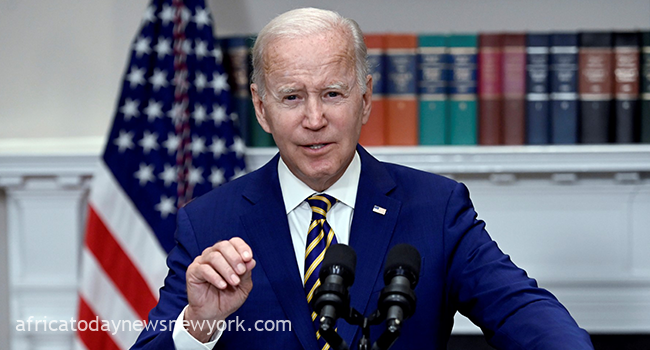President Joe Biden has been dealt a significant political setback by the Supreme Court of the United States after it overruled his landmark programme to cancel the student debt of millions of Americans.
In an effort to lessen the financial weight of education that continues to linger over many Americans decades after they have completed their studies, the court ruled that Biden had overstepped his authority when he cancelled more than $400 billion in debt.
By a decision of six to three, the court, which is dominated by conservatives, ruled that the president should have sought express congressional approval before announcing the program.
It claimed that Biden erred in citing the Higher Education reduction Opportunities for Students Act of 2003 to support the debt reduction strategy.
Six Republican-led states filed a lawsuit claiming that Biden’s debt cancellation was not permitted by the 2003 act, which meant to assist former students who enlisted in the military following the September 11, 2001 attacks.
‘We agree,’ Chief Justice John Roberts wrote in the majority opinion.
‘The question here is not whether something should be done; it is who has the authority to do it,” he said.
Biden “strongly” disagrees with the Supreme Court’s decision and will later “make clear he’s not done fighting yet,” a White House source said shortly after the ruling, speaking on condition of anonymity.
Nearly 43 million Americans hold $1.6 trillion in federal student loans, and some end up repaying them over decades as they start jobs and families.
Read Also: Biden Discusses With Scholz, Macron, Sunak Over Russia
Biden announced the plan in August 2022, saying that up to $20,000 per borrower — only those from low or middle-income groups — would be forgiven.
The plan came on the back of a student loan payment freeze instituted by his predecessor Donald Trump during the Covid-19 pandemic.
But the court said Biden did not have the power to unilaterally erase so much debt; that power is held by Congress, which oversees US finances.
‘Among Congress’s most important authorities is its control of the purse,’ wrote Justice Neil Gorsuch.
The court’s three progressive justices all dissented in the decision.
Justice Elena Kagan wrote that the court itself was overstepping its powers in the case.
She argued that none of the states who sued to challenge Biden’s policy had standing to do so — they neither had a personal stake nor incurred an injury by the policy.
‘We do not allow plaintiffs to bring suit just because they oppose a policy,’ she said.
She also argued the 2003 act does permit the policy, and that the court anchored its decision mainly on the very size of the debt cancellation and its impact on national finances.
